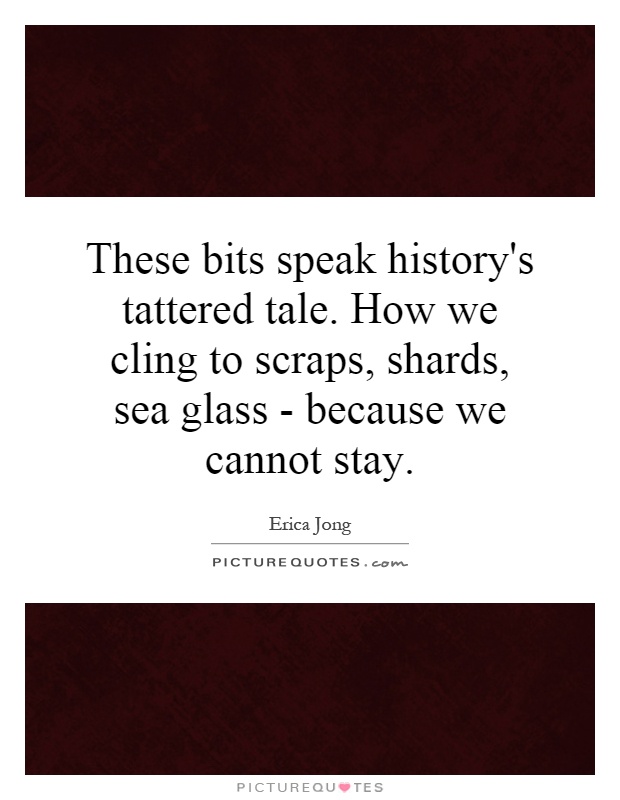These bits speak history's tattered tale. How we cling to scraps, shards, sea glass - because we cannot stay

These bits speak history's tattered tale. How we cling to scraps, shards, sea glass - because we cannot stay
Erica Jong is a renowned American novelist, poet, and essayist known for her candid and provocative writing on topics such as love, sexuality, and feminism. Her works often explore the complexities of relationships and the struggles of women in a patriarchal society. In the quote “These bits speak history's tattered tale. How we cling to scraps, shards, sea glass - because we cannot stay”, Jong captures the essence of human nature and our innate desire to hold onto fragments of the past.The phrase “These bits speak history's tattered tale” suggests that the remnants of our past experiences and memories tell a story of our journey through life. Just like pieces of a puzzle, these bits and scraps come together to form a narrative that shapes our identity and influences our present actions. Jong acknowledges the importance of acknowledging and honoring our history, no matter how fragmented or tattered it may be.
The mention of “scraps, shards, sea glass” evokes images of brokenness and imperfection. These fragments symbolize the trials and tribulations we face in life, as well as the beauty that can emerge from our struggles. Sea glass, in particular, is a metaphor for resilience and transformation – just as broken glass is smoothed and polished by the ocean, so too can we find healing and growth in the face of adversity.
The final line, “because we cannot stay”, speaks to the transient nature of life and the inevitability of change. We are constantly moving forward, leaving behind pieces of ourselves as we journey through time. Despite our longing to hold onto the past, we must ultimately let go and embrace the unknown future that lies ahead.












 Friendship Quotes
Friendship Quotes Love Quotes
Love Quotes Life Quotes
Life Quotes Funny Quotes
Funny Quotes Motivational Quotes
Motivational Quotes Inspirational Quotes
Inspirational Quotes